A product recall as a result of contamination, design faults, mislabelling or malicious tampering is one of the most risk-laden situations a company can face, yet it seems many Australian businesses don’t fully understand the potential impact a recall could have on their balance sheet or their stakeholders.
Contaminated food products are usually destroyed rather than recalled, which means these incidents can have serious consequences for those involved if not handled well. A recall is a big hit to any company as it involves both direct and indirect cost outlays, which can include:
- Direct impact to the bottom line, with potentially crippling results
- Termination of contracts with supply chains and retailers
- Long-term brand and reputational damage – voicing opinions through social media channels often catch the eye of news networks
- Loss of customer loyalty & advocacy
- Extensive legal costs
More pressure than ever before for F&B companies
Food and beverage companies on all sides of the fence – whether you’re a large or small manufacturer, retailer or wholesaler – are under more pressure than ever to deliver new products. As more locally and internationally sourced ingredients are being introduced and supply chains are becoming more complex, product traceability and contamination outbreaks are becoming harder to control.
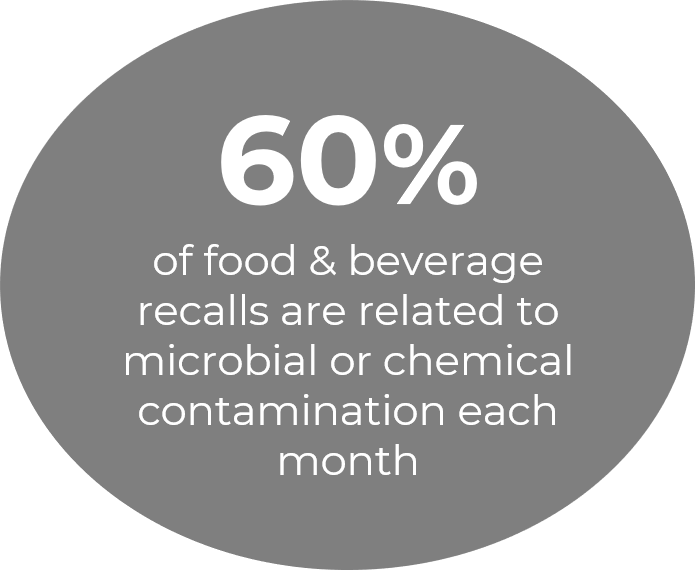
As a result, product recalls within the Australian food and beverage industry (and throughout the world) are on the rise. According to the Australia Competition Consumer Commission (ACCC), more than one food or beverage product is recalled off our shelves every week. These are quite alarming stats considering a high percentage of recalls are related to potential chemical or microbial contamination – 60% in October alone.
These numbers highlight the importance for businesses to regularly revisit, review, update and implement effective quality control measures. Doing so will not only help minimise the impact a recall could have on your business, but it will also help ensure consumer health and safety is upheld.
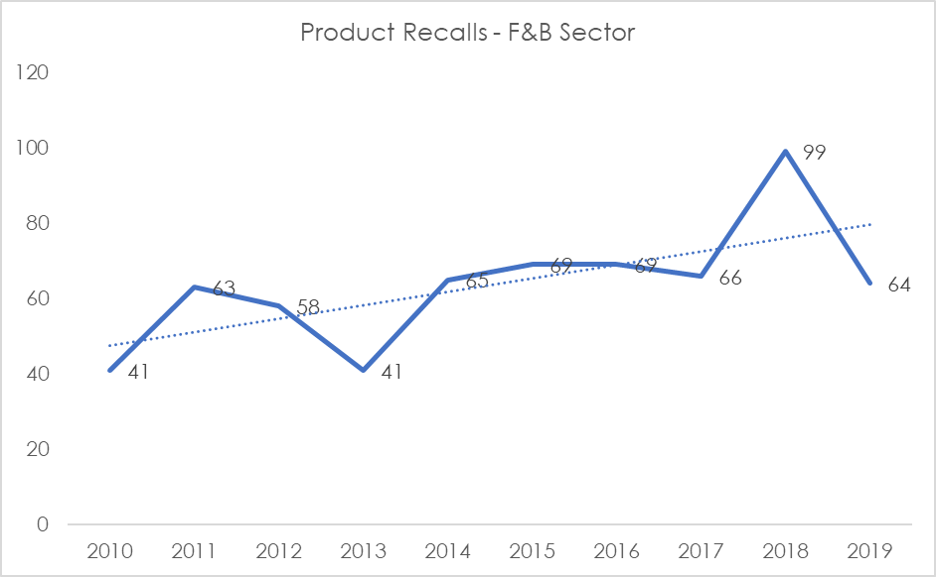
Steps For Effective Product Recall Control (Plan, Prevent, Insure)
Planning
Planning is an essential component for any business to have the chance to succeed, and it needs to be applied across all areas, from design and product selection through to business operations and administration.
It is compulsory for all Australian manufacturers, wholesalers and importers of food and beverage products to have a plan in place in case of a recall.
This protocol by Food Standards Australia New Zealand (FSANZ) provides in-depth information businesses can use to help write a strong food recall plan, arming your business with the right information and techniques should a crisis ever arise. It includes:
- Contact details for FSANZ and state/territory enforcement agencies
- Key personnel and responsibilities
- Examples of problems and suggested actions
- Various useful templates, checklists, diagrams and advertisements
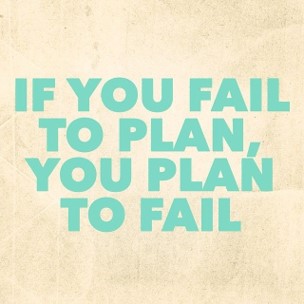
The Independent Brewers Association (IBA) have interpreted the full FSANZ recall protocol and adapted it to help out beer manufacturers, importers and suppliers within their industry (http://iba.org.au/iba-beer-recall-plan/). It is a great foundation for any food and beverage business, particularly those in the alcohol sector. However, the templates can be adapted to any industry.
By doing this, the IBA have armed each of their members with the appropriate collateral and tools to be able to complete, train and advertise their own recall plan. The information has been distilled into three sections:
- Beer recall information pack – to read alongside the recall plan.
- Beer recall plan – tables, checklists, contact info, templates, diagrams, adverts.
- Beer recall FAQs
Prevention
As product recalls continue to climb, we’re seeing more businesses starting to take prevention a lot more seriously, especially in Europe who withdraw an average of 22 products of the shelf each week.
Investing in an effective preventative solution means investing in high quality detection technology. But it’s vital that businesses select the right partner to work with who can advise, guide and update them on the best solution that’s right for them.

New, and often simple, detection technologies are being developed all the time and show great promise for businesses to be able to effectively combat any outbreaks or spoilages that currently fall under the radar. Advanced detection technology is a long-term investment and is a fraction of the cost compared to what you could pay if you had to recall a product.
The combination of proper planning and keeping up-to-date with the latest detection technology will help greatly reduce product recalls. Additionally, brand image, customer loyalty and advocacy are also maintained – and often improved – when companies show they are continually looking for new processes and systems that protect customers.
Insurance
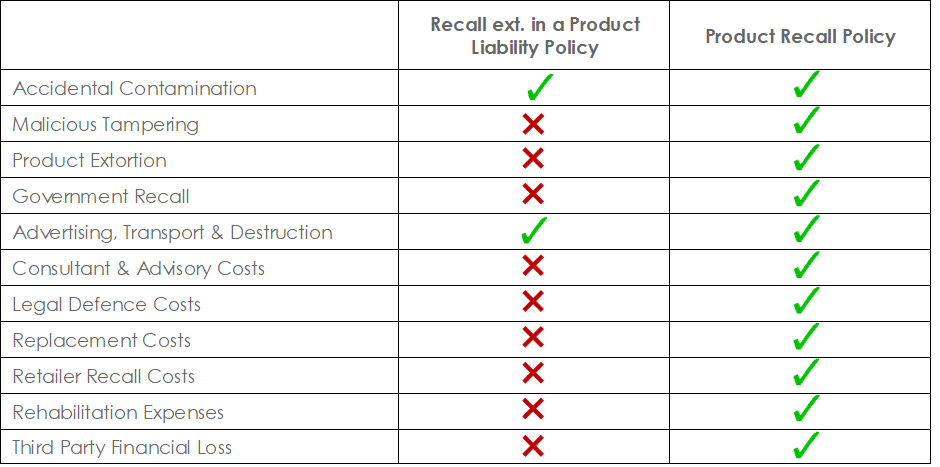
Many food & beverage companies in Australia are under-insured when it comes to their product recall cover. In fact, 63% purchase less than the average cost of a recall, and 19% operate without this cover altogether. There is also a common misconception held by many small-to-medium businesses that believe product recall cover is included as part of the extensions they add on to their existing product liability policies. This is certainly not the case. Understanding the difference between the two is essential to ensure that you are not exposed to some of the major costs relating to a recall.
The above table outlines what’s covered under a product liability policy (with recall extensions added), compared to a tailored product recall policy. The key difference is that product liability insurance does not factor in protection should something go wrong on the manufacturing line.
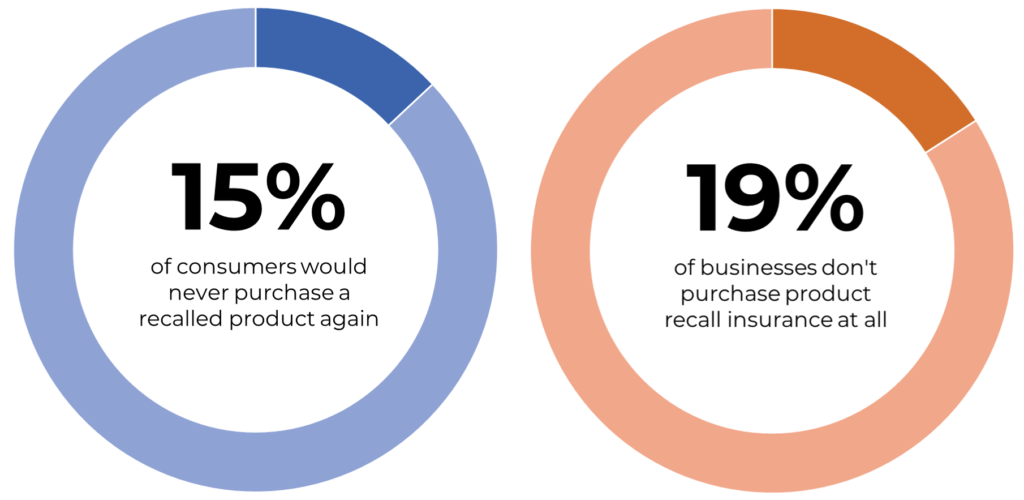
Conclusion
Investing in the right product recall insurance cover is essential to all food & beverage businesses, particularly those who provide product to the major retailers – the more product and consumer reach you have, the higher your risk.
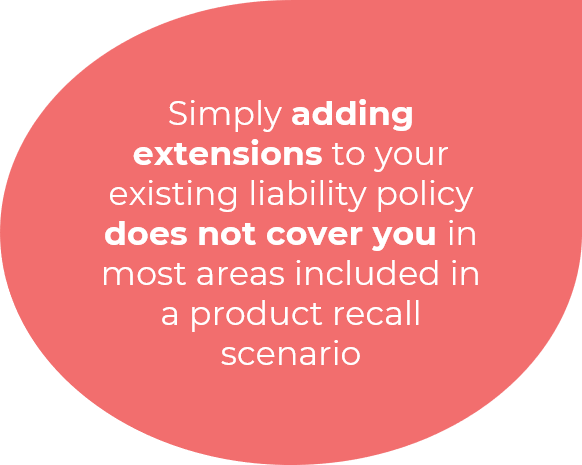
So be sure to check that you and your business are correctly covered. Remember that simply adding extensions to your existing liability policy does not cover you in most areas included in a product recall scenario.
An ideal level of cover includes both Contaminated Products Insurance and Product Recall/Withdrawal Insurance. With this type of cover, you’ll be able to minimise the impact of a recall by covering the costs to investigate complaints, communicate the recall, collect, repair and dispose of the products, and recuperate lost profits, legal fees and penalties.
Product quality and safety are the shop window of a brand. Having the right level of product recall cover in place can ensure your brand remains untarnished, operational and successful.
DISCLAIMER:
This article is informational only and should not be construed as individual advice as it does not consider your individual needs. You should consider if the insurance is suitable for you and read the Product Disclosure Statement or policy Wording before buying insurance.



Leave A Comment